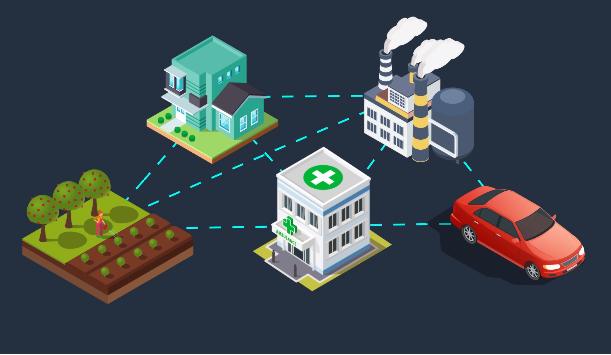| More AWS on Coursera and edX |
| Thursday, 12 November 2020 | |||
|
Amazon Web Services has announced additions to its range of training options. Two free self-paced courses, one on AWS IAM, Identity and Access Management, and the other on AWS IoT, using Amazon Web Services for the Internet of Things, are now available from both edX and Coursera. Disclosure: When you make a purchase having followed a link to from this article, we may earn an affiliate commission. We recently reported, on the fact that Amazon Web Services now uses both edX and Coursera as platforms for training courses developed by AWS Training and Certification. Like the Building Modern Applications on AWS courses that were the topic of that article, these AWS courses are available free of charge unless you want a certificate.. We reported on AWS IoT: Developing and Deploying an Internet of Things when it was originally launched on edX. Designed for application developers and at intermediate level, this course helps you utilize AWS IoT services to build, test, and distribute applications to simulated devices. Now a self-paced course, expected to require 6 hours, it covers:
The course, which has four modules, still referred to by week number even though you can probably complete it within a matter of days, comprises video-based lectures, demonstrations and hands-on lab exercises, run in your own AWS account, that will allow you to build, deploy and manage your own IoT solution. In this video, Lead Instructor Allen Goldberg who is Curriculum Development Manager with Amazon Web Services explains given the proliferation of billions of devices in homes, factories, oil wells, hospitals, cars, we need solutions to connect them, and collect, store, and analyze the data they provide. The answer is. AWS IoT, which provides broad and deep functionality, spanning the edge to the cloud, so you can build IoT solutions for virtually any use case across a wide range of devices. The syllabus of Introduction to AWS Identity and Access Management is also split into 4 weeks, although with only 11 hours of content it too can be probably be completed more quickly now as a self-paced course. It is designed to give developers, operators, and architects greater insights into using AWS IAM to maintain security. You’ll learn how to grant developers and applications access to the right resources at the right time for the right actions. According to its blurb: The goal of this course is to provide you with foundational knowledge and skills that will enable you to grow in your use of both AWS IAM and the rest of the AWS ecosystem. Throughout the course, the focus will be on the base-level knowledge needed for understanding the functionality of IAM, and simple ways to implement its usage. By completing it you will:
Although this course is at introductory level, some basic knowledge of AWS already is assumed. For example, you should know the basics of the AWS Global infrastructure, and what regions and availability zones are. You should also understand what an Amazon EC2 instance is, what Amazon S3 is, what a VPC is, as well as other basic AWS terminology. You can also enroll in these courses on the Coursera platform, where the content is identical. If you want certificate the cost differs between the platforms. On Coursera each course is $49, whereas on edX the cost for the IOT course is $99 and for the IAM course is $169. On edX paying the fee gives you unlimited access to the course rather than 6 weeks access. More InformationAWS IoT: Developing and Deploying an Internet of Things (on edX) AWS IoT: Developing and Deploying an Internet of Things (on Coursera) Introduction to AWS Identity and Access Management (on edX) Introduction to AWS Identity and Access Management (on Coursera) Related ArticlesExplore AWS IoT On edX Platform AWS Training On Coursera, edX and Future Learn Prepare For AWS Certification On FutureLearn Professional Credentials For Computer Science Careers Choosing Tools for Efficient Deployment on AWS To be informed about new articles on I Programmer, sign up for our weekly newsletter, subscribe to the RSS feed and follow us on Twitter, Facebook or Linkedin.
Comments
or email your comment to: comments@i-programmer.info |
|||
| Last Updated ( Thursday, 12 November 2020 ) |




